There’s an article that I’ve seen making the rounds on Facebook called “Ariana Grande, Kim Kardashian, and the War on ‘Unlikable Women.'” And I read it, not because I necessarily have any strong feelings (in any direction) about Ariana Grande or Kim Kardashian but because I am struck by the manner in which the “unlikable woman” is made manifest in our popular-cultural consciousness.
In the piece, Nico Lang uses The Hollywood Reporter’s compilation of celebrity Q scores, or the manner in which these celebrities’ popularity and appeal is measured and ranked, as a means of reflecting on the gendering of celebrity unlikability. In thinking about the list of the most hated celebrities of the moment, Lang points out the double standard that seems to be inherent in the seemingly gendered rendering of unlikability, arguing that “to be the most-hated woman of the moment, all you have to do is be kind of a brat,” and wondering,
Other than being irritatingly ubiquitous or hating America, what exactly are their crimes? Has Kim Kardashian ever been accused of plagiarism—like Robin Thicke? Has Ariana Grande ever been accused of being a fraud by an Ivy League university—like Dr. Oz, whose negative Q Score increased just 16 points in the past year? Has Kardashian ever publicly threatened her partner—like Shia LaBeouf, who didn’t even make the list? Ray Rice was caught on tape attacking his wife and was suspended from the NFL for it, and his actual illegal behavior didn’t merit a mention either.
Indeed, Lang ultimately argues, “The playing field here is so uneven that it’s absurd, as women are docked so much more severely for laughably trivial things. This is the case whether you’re a singer, a reality TV star, or literally any person who dares lives in public while owning a vagina.”
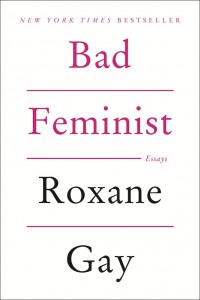 Reading Lang’s piece, I’m reminded of another by Roxane Gay called “Not Here to Make Friends,” which also makes an appearance as a chapter in her book Bad Feminist (such a good book). In “Not Here to Make Friends,” Gay also explores the gendered implications of unlikability, but instead of discussing the unlikability of female celebrities as Lang does, Gay directs our attention to certain unlikable characters, utilizing narrative and fiction as the foundation for her argument. In doing so, Gay highlights the fact that we might come to think of likability as “a very elaborate lie, a performance, a code of conduct dictating the proper way to be. Characters who don’t follow this code become unlikable. Critics who fault a character’s unlikability cannot necessarily be faulted. They are merely expressing a wider cultural malaise with all things unpleasant, all things that dare to breach the norm of social acceptability.” And she extends this line of thinking by pointing out that when female characters “are unlikable, it becomes a point of obsession in critical conversations by professional and amateur critics alike. Why are these women daring to flaunt convention? Why aren’t they making themselves likable (and therefore acceptable) to polite society?”
Reading Lang’s piece, I’m reminded of another by Roxane Gay called “Not Here to Make Friends,” which also makes an appearance as a chapter in her book Bad Feminist (such a good book). In “Not Here to Make Friends,” Gay also explores the gendered implications of unlikability, but instead of discussing the unlikability of female celebrities as Lang does, Gay directs our attention to certain unlikable characters, utilizing narrative and fiction as the foundation for her argument. In doing so, Gay highlights the fact that we might come to think of likability as “a very elaborate lie, a performance, a code of conduct dictating the proper way to be. Characters who don’t follow this code become unlikable. Critics who fault a character’s unlikability cannot necessarily be faulted. They are merely expressing a wider cultural malaise with all things unpleasant, all things that dare to breach the norm of social acceptability.” And she extends this line of thinking by pointing out that when female characters “are unlikable, it becomes a point of obsession in critical conversations by professional and amateur critics alike. Why are these women daring to flaunt convention? Why aren’t they making themselves likable (and therefore acceptable) to polite society?”
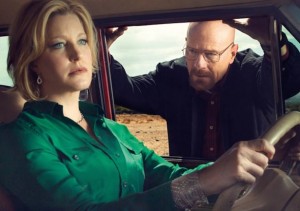 The burden of politeness and propriety does seem to weigh more heavily on women (the reasons for this require some serious unpacking and consideration, which I don’t feel capable of carrying out to the extent it deserves here), and this burden seems to have become a narrative convention as well. It’s a convention, for example, that results in the fact that a character like Walter White is deemed an antihero for whom the audience roots while Skyler White is deemed a character to be hated. It is, as Lang puts it, an uneven playing field for female characters, for female celebrities, and for women more broadly because the hatred directed at so-called unlikable women “not only punishes those who don’t fit whatever impossible standards we’ve set for women today, it encourages women to stay silent—or just go away.”
The burden of politeness and propriety does seem to weigh more heavily on women (the reasons for this require some serious unpacking and consideration, which I don’t feel capable of carrying out to the extent it deserves here), and this burden seems to have become a narrative convention as well. It’s a convention, for example, that results in the fact that a character like Walter White is deemed an antihero for whom the audience roots while Skyler White is deemed a character to be hated. It is, as Lang puts it, an uneven playing field for female characters, for female celebrities, and for women more broadly because the hatred directed at so-called unlikable women “not only punishes those who don’t fit whatever impossible standards we’ve set for women today, it encourages women to stay silent—or just go away.”
Perhaps these impossible standards reveal the importance of unlikable female characters because, as Gay posits, “unlikable characters, the ones who are the most human, are also the ones who are the most alive.” Unlikable characters are complex—they’re complicated, they’re flawed, they’re human. And the hatred of unlikable women might then stem from the systemic denial of women’s humanness and from the unrealistic standards that then result from such repudiation.
Unlikable characters make visible the fact that we make mistakes, that we’re not perfect, that we lead full and difficult lives, that we are not one-dimensional constructs, that we are alive. And while, yes, unlikable female characters do exist, there is more work to be done, there’s room for improvement, there’s an opportunity for even more widespread visibility of unlikable women across media forms and throughout our narrative structures. And this seems especially true for the stories being told thus far in video games.
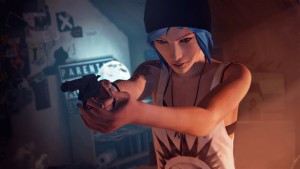 On a more hopeful note, Life is Strange might be representative of a step in the right direction, since many of the female characters in the game have traits that could be construed as unlikable—Victoria Chase comes across as an entitled bully, Chloe Price is an angsty overuser of the word “hella,” and even Max is flawed and can make the wrong choices. But even Victoria isn’t necessarily wholly unlikable, and it is this blurring of likability and unlikability that makes these characters more complex and engaging than a lot of the female characters we see in games. I’m not saying that the rendering of these characters isn’t, at times, problematic, but I do think that these characters allow us to think about the various ways that female characters in video games can be revealed to be more complex and more fully formed individuals.
On a more hopeful note, Life is Strange might be representative of a step in the right direction, since many of the female characters in the game have traits that could be construed as unlikable—Victoria Chase comes across as an entitled bully, Chloe Price is an angsty overuser of the word “hella,” and even Max is flawed and can make the wrong choices. But even Victoria isn’t necessarily wholly unlikable, and it is this blurring of likability and unlikability that makes these characters more complex and engaging than a lot of the female characters we see in games. I’m not saying that the rendering of these characters isn’t, at times, problematic, but I do think that these characters allow us to think about the various ways that female characters in video games can be revealed to be more complex and more fully formed individuals.
Perhaps such unlikable characters resonate with me because it makes me think about my own unlikability, which is something that, in all honesty, I grapple with more than I care to admit. And, indeed, perhaps the reason they resonate so is because, as Gay puts it, “I want characters to do the things I am afraid to do for fear of making myself more unlikable than I may already be. I want characters to be the most honest of all things — human.”

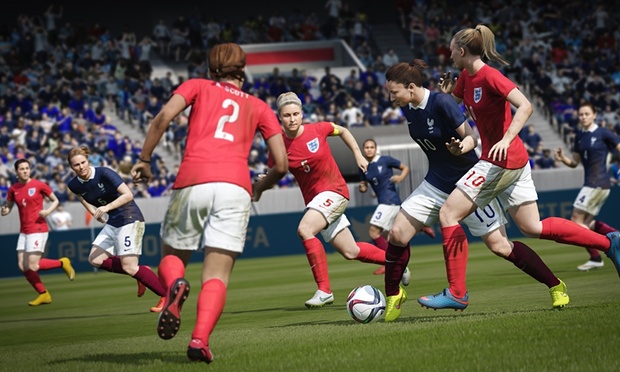
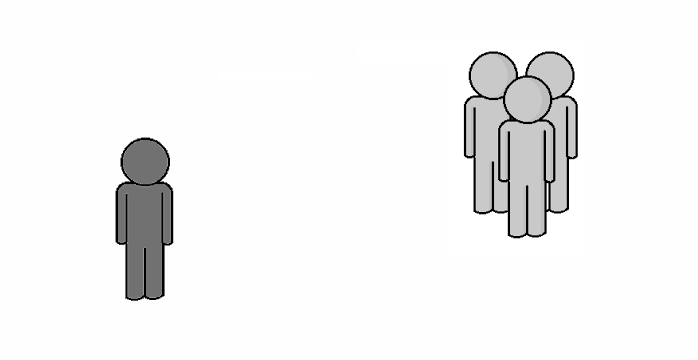
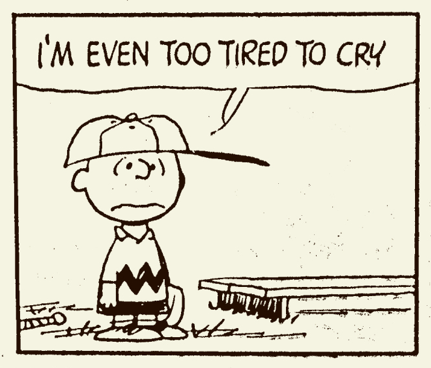

One thought on “In Defense of Unlikable Women”
All my Heroines are Villianesses. They are dimensional creatures. Tragic flaws aside they are far more striking than are their perky protagonists. Built of muscle and sinew, they plot, think, conspire, venturing into the realm of masculine traits, they mesmerize the misogyny out of mortal men. The stunning Evil Queen, wracked by the flawless cotton candy beauty of teenybopper Snow White (and forgetting to read The Uses of Enchantment for a better understanding of older/younger female dynamics) eschews botox, to poison SW into a perpetual stasis of cute. Cruella DeVille, a working woman who’s screen presence is the touchstone for Meryl Streep’s Miranda Priestly and who, bowing to the chauvinistic pressures of her era, goes “soft” on us in the only way she knows how, a puppy-skin coat. Pets, petting and PETA politics aside, portrayal of strength in the female character need not be limited to the “bad” girl in the plot. To truly understand, bad as good, one need look no further than Sargent Tamora Jean Calhoun, the backstory scared platoon leader from Wreck-it-Ralph who finds love in an against-her-type guy who can take it on the chin with a grin. Good is a chocolate bon-bon, soft and sweet. Bad is a shot of whiskey. Give me a shot of bad and follow it with a chaser of intelligence. Throw in that mix a little nudity and I’ll follow that archetype to the ends of the earth.